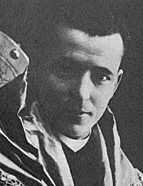

Cerejeira’s most widespread, commented on, translated and criticised work, A Igreja e o Pensamento Contemporâneo [The Church and Contemporary Thought] (1924, reprinted in 1928, 1930, 1944 and 1953, translated into Spanish in 1945), although unrelated to the historiographical field, provides an insight into the decisive aspects of his historiography. They reveal him as a militant, committed intellectual, and can be included in the criticism that Julian Benda directed, among others, at Henri Bergson, whose vitalist and intuitionist theses Cerejeira was close to, although he considered them insufficient. They did, however, allow him to delegitimise the totalising pretension of positivist ideology, while at the same time retaining the primacy of facts in his method. By doing so, he sought to clearly establish the boundaries between science and religion, safeguarding the autonomy of both and their necessary relationship, which allowed him to sustain the anthropological and social validity of religion – in other words, Christianity and, in particular, Catholicism. This perspective had an institutional correlate, the necessary autonomy of the State and the Church from each other, clearly expressed in the title of one of the parts of A Idade Média [The Middle Ages]: “The historical originality of the Church: the ‘great innovation’ of a moral power independent of the State” (p. 293).
This “intellectual crusade” (see Luís Salgado de Matos, Cardeal Cerejeira… , 2018, p. 30) aimed at the “Christian Reconquest of contemporary high thought” had a triumphalist flavour in the 1924 work. In a more circumspect manner, but no less forceful, these elements can be seen in his doctoral thesis. Clenardus gave him the opportunity to take part in the debate that divided the Portuguese intelligentsia between the end of the 19 th century and the beginning of the following century: the causes of national decadence. Drawing on the biographical and intellectual background of the Flemish humanist, he showed critical autonomy in the face of the intervention of ecclesiastic and political structures – the Inquisition above all – which would give him greater legitimacy to point out the insufficiency of Antero’s theses, which he explicitly mentions. Conversely, he was closer to the views of Herculano, Oliveira Martins, Silva Cordeiro – whom he mentions – and, above all, António Sérgio, whom he often quotes. With Clenardus , Cerejeira stresses that the “deep reason for our decadence” had to be found in the “defects of the economic and social structure” of Portuguese society in the 1500s, to which the ideal of chivalry had contributed, promoting the “abhorrence” of work and the “nobility mania”, which the dynamic of slavery had exacerbated; in addition to being morally reprehensible, its effects had been pernicious, resulting in the ruin of free labour, the corruption of customs and the disorganisation of the family ( Clenardo , pp. 197-210).
This work is financed by national funds through FCT - Foundation for Science and Technology, I.P, in the scope of the projects UIDB/04311/2020 and UIDP/04311/2020.
